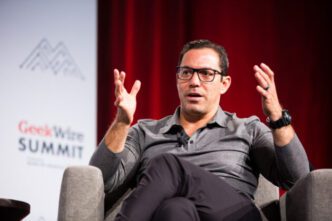Belgium-based biotech startup Augustine Therapeutics has raised an impressive €77.7 million in Series A funding, setting the stage for major clinical advancements in the treatment of neuromuscular, neurodegenerative, and cardio-metabolic diseases. The oversubscribed round was co-led by Novo Holdings and Jeito Capital, with ongoing support from Asabys Partners, which had previously led the company’s initial closing of €17.5 million in early 2024.
The funding round attracted a diverse group of strategic investors, including pharmaceutical giant Eli Lilly and Company, AdBio Partners, V-Bio Ventures, PMV, VIB, Gemma Frisius Fund, the CMT Research Foundation from the U.S., and Newton Biocapital. This strong investor mix signals growing confidence in Augustine’s scientific approach and clinical potential.
With this new capital, Augustine is set to accelerate its lead candidate AGT-100216 into Phase I/II clinical trials. The trial will target Charcot-Marie-Tooth (CMT) disease, a rare hereditary disorder that damages the peripheral nerves, leading to progressive muscle weakness and sensory loss. Affecting roughly three million people worldwide, CMT remains an area with limited treatment options — something Augustine aims to change.
The biotech firm also plans to advance two additional discovery-stage programs focused on developing next-generation HDAC6 inhibitors. These programs are designed with distinct profiles — one is peripheral-restricted, while the other crosses the blood-brain barrier to target neurological conditions with central nervous system involvement. Both programs tackle unmet medical needs in complex neurodegenerative and cardio-metabolic diseases.
Founded on the groundbreaking research of Prof. Ludo Van Den Bosch from the VIB-KU Leuven Center for Brain and Disease Research, Augustine’s scientific platform zeroes in on selective HDAC6 inhibition. This innovative approach offers the potential to preserve beneficial cellular functions while targeting disease-causing mechanisms. Unlike earlier generations of HDAC6 inhibitors known for off-target toxicity, Augustine’s proprietary compounds employ a non-hydroxamate, non-hydrazine mechanism for improved selectivity and safety.
AGT-100216, their most advanced drug candidate, has shown promising preclinical results. Data suggests it provides a safer, more effective alternative to traditional HDAC6 inhibitors, potentially improving motor function and slowing disease progression in CMT patients. The upcoming clinical trial will serve as a proof-of-concept for both efficacy and safety, marking a critical milestone for the company.
Driving this momentum is CEO Gerhard Koenig, PhD, who took the helm in January 2025. With extensive leadership experience in biopharma, Koenig previously served as Augustine’s Executive Chairman and is now tasked with guiding the company through clinical development and strategic expansion.
For the biotech industry, Augustine’s focus on HDAC6 inhibition could reshape treatment possibilities across multiple diseases. By honing in on selective inhibition, the company is working to overcome the toxicity challenges that have plagued earlier efforts in this space — potentially opening new therapeutic avenues not just for CMT but also for a wider range of neurological and metabolic disorders.
The Augustine Therapeutics funding success story reflects growing investor confidence in novel approaches tackling rare and complex diseases. With significant financial backing, a seasoned leadership team, and a robust pipeline, Augustine is poised to redefine treatment standards in the biotech landscape — offering hope to millions of patients with limited options.













